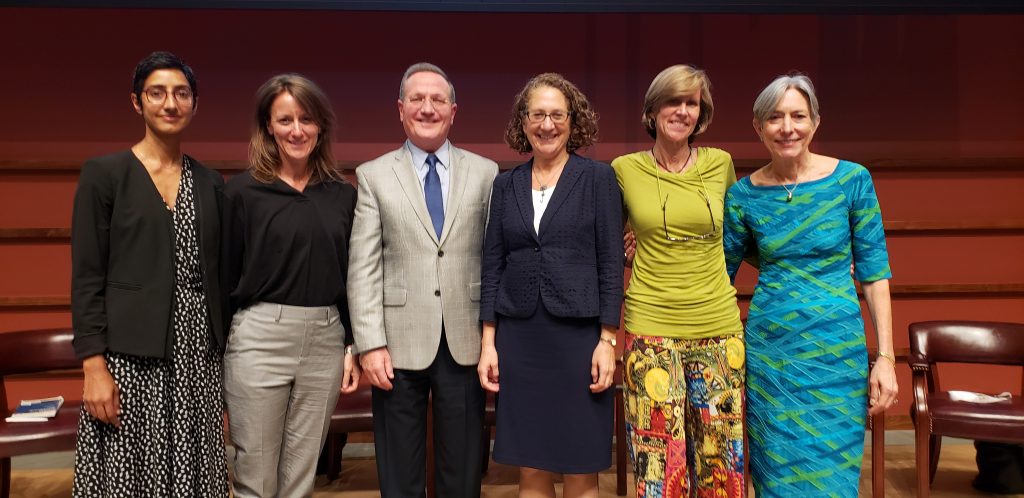 Too often in the peacebuilding process a gap exists between global organizations, businesses and those at the grassroots engaged in work that seeks to address critical issues including conflict, violence and injustice. Today, RFBF president Brian Grim joined in a session that explored strategies for closing this gap and why global organizations are prioritizing grassroots partnerships.
Too often in the peacebuilding process a gap exists between global organizations, businesses and those at the grassroots engaged in work that seeks to address critical issues including conflict, violence and injustice. Today, RFBF president Brian Grim joined in a session that explored strategies for closing this gap and why global organizations are prioritizing grassroots partnerships.
The event was part of a URI (The United Religions Initiative) two-day international conference on interfaith strategies for global peacebuilding at the Hoover Institution on the Stanford University campus.
Participants in the panel include (pictured above):
- ∎ Moderator: Suzanne Eloise Siskel, Executive Vice-President and Chief Operating Officer of the Asia Foundation, and URI President’s Council Member
- Panelists:
- ∎ Kate Cumbo, PhD, Executive Director of the PeaceJam Foundation
- ∎ Rabbi Serena Eisenberg, Regional Director of the American Jewish Committee Northern California
- ∎ Dr. Brian J. Grim, President of the Religious Freedom & Business Foundation Reverend
- ∎ Susan O. Hayward, Senior Advisor for Religion and Inclusive Societies at the US Institute of Peace
- ∎ Aqeela Jogee, Vice-President of Programs at Give2Asia
Grim shared how 12 business leaders from across the globe are advancing interfaith understanding, religious freedom and peace through their core business, social investment and philanthropy, advocacy and public policy engagement, and partnerships and collective action. The religious, geographic and business-type diversity of these businesses and leaders shows that the values of interfaith understanding, religious freedom and peace have universal appeal.
These 12 leaders were finalists for the inaugural 2016 Global Business & Interfaith Peace Awards. You can meet them in the video below. He also shared about the “grassroots” initiatives for religious diversity and inclusion in one local (and global) company, Salesforce.
